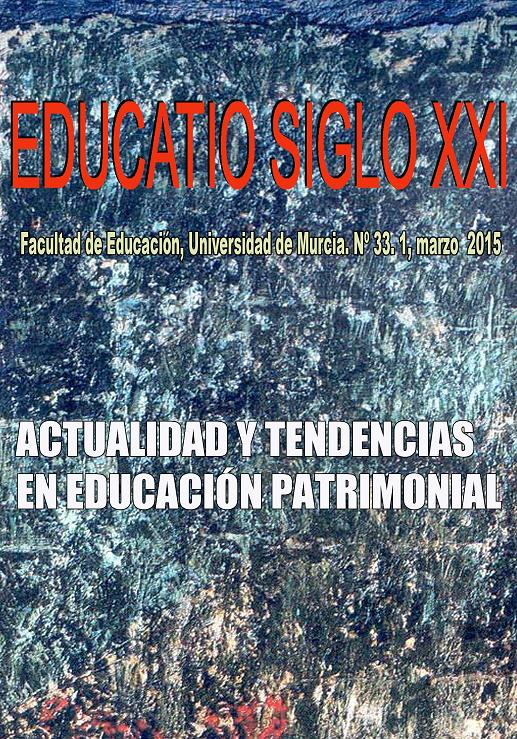Assessing the Educational Programs in Art Museums linked to the ECPEME Project
Abstract
1. This article presents some of the results of the research ECPEME, carried out in some art museums: the Sculpture Museum in Valladolid, the Patio Herreriano Museum in Valladolid and the CN Jovellanos Museum in Gijón. Its aim is the quest for quality standards and/or criteria to improve the educational systems and, thus, the search for criteria to improve the research on educational programmes. Its results have fostered a process that we may refer to as “transit”, as it is a tool for explaining the different changes that have taken place in the museums. Consequently, transits happen in the museums themselves, which are no longer conceived as containers but as educators.
In the educational programmes of the museums these transits evolve through their own expression and reflection: in the transition from the assessment of audiences to the assessment of educational programmes; in the researchers and their relationship with educators and other staff in charge of the educational programmes; and in the relationship of the latter category with research. It can be stated that the type of assessment carried out is aimed at describing and interpreting educational actions in the museums as a dialogue between the people in charge of them and the researchers. This dialogue results in an interaction, which we consider to be central to the search for quality standards in educational programmes.
Downloads
-
Abstract793
-
PDF (Español (España))552
Original work publishes in this journal is subject to the following terms:
1. Murcia University Press (the publishing house) holds the copyright of the publishes work, and favours and allows their reutilization under the use license stated in point 2.
© Servicio de Publicaciones, Universidad de Murcia, 2015
2. Work is published in the electronic edition under a license (Creative Commons Reconocimiento-NoComercial-SinObraDerivada 4.0 España (legal text). They can be copied, used, disseminated, transmitted and publicly presented, as long as: i) authorship and original publication source is acknowledged (journal, publishing house and URL of the work); ii) are not used for commercial purposes; iii) the existence and specifications of this use license is stated.
3. Conditions for self-archive. Authors are allowed and encouraged to disseminate electronically the pre-pint (before review) and/or post-print (accepted for publication) versions of their work before their publication since that favours earlier circulation and dissemination resulting in an increased chance for the authors to be cited and for the work to reach a bigger share of the academic community. Colour: RoMEO: green.








